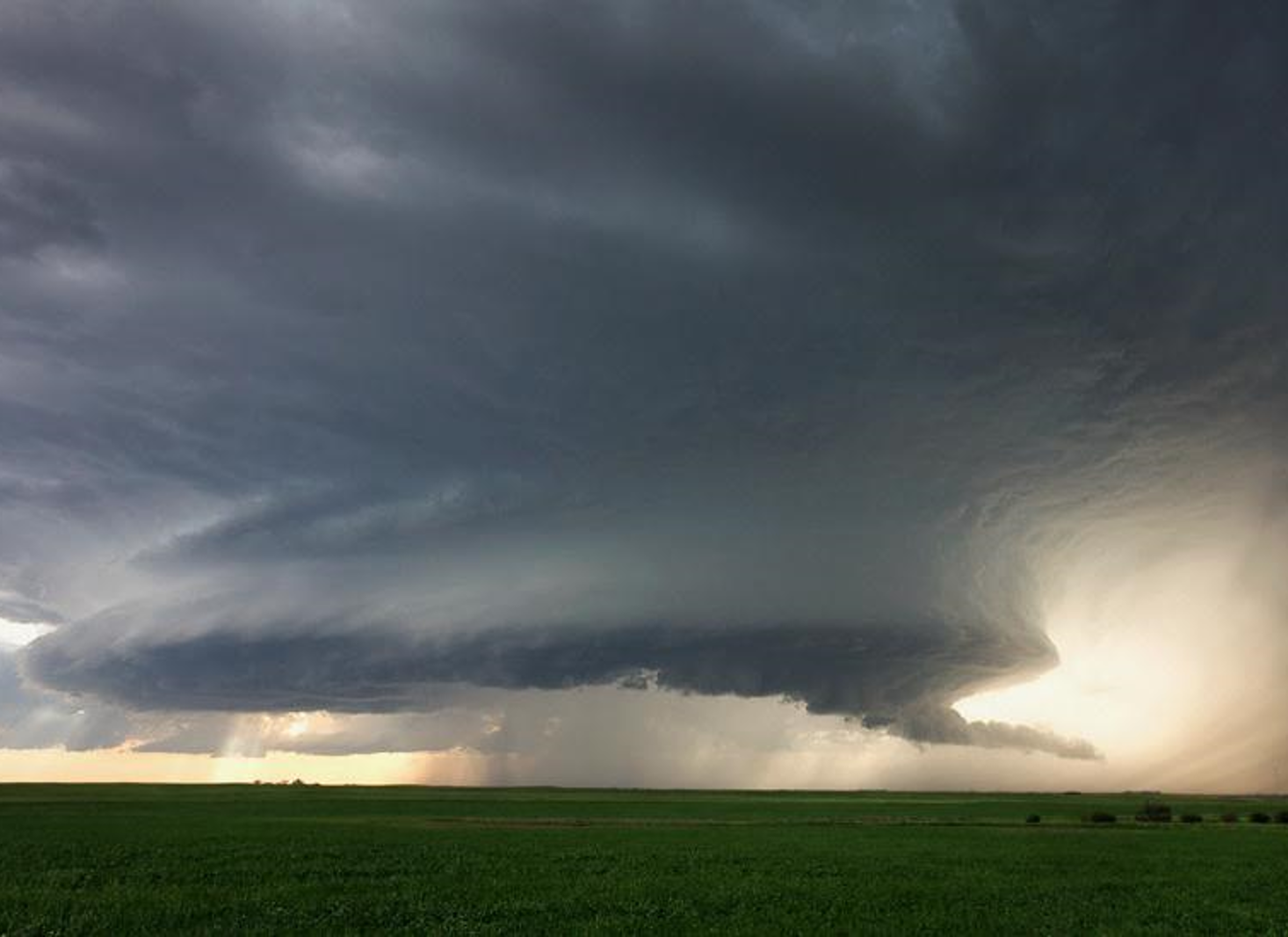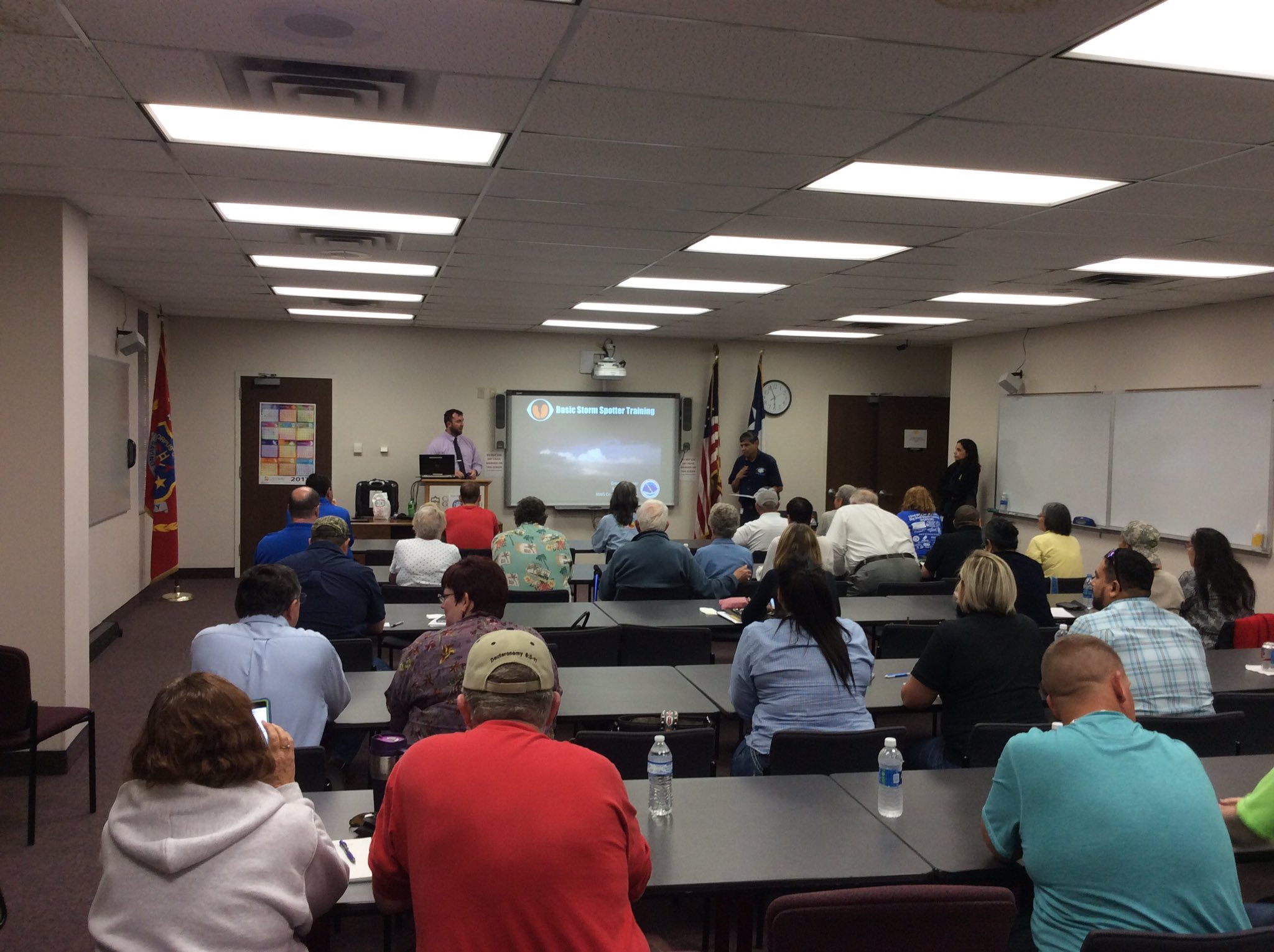
A large high pressure system will usher in cold air for this first day of March across the northern Plains, Great Lakes, Northeast and mid-Atlantic. Some wintry precipitation may evolve across the mid-Mississippi Valley, Ohio Valley and mid-Atlantic through Monday. Meanwhile, record warmth will spread across the Southwest, southern Plains through early this week. Read More >

¡Para español haga clic aquí!
2024 SKYWARN Schedule Both In-Person and Virtual sessions will be offered for the 2024 SKYWARN Storm Spotter training program. These classes are free and open to everyone. In-person classes will last between up to 90 minutes, while virtual classes will be shorter around 30 to 45 minutes. Certificate passwords will be provided during each webinar. For this upcoming season, we will be offering our traditional SKYWARN talk as well as sessions in Spanish and a couple sessions that will be more marine-oriented. Classes are actively being scheduled with additional classes likely to become available through April. Mar. 12th, 2024 10:00 AM-12:00 PM Basic Victoria, TX 205 N Bridge St. Suite. B-101 Mar. 18th, 2024 7:00-7:45 PM Virtual Online Mar. 20th, 2024 5:45-7:30 PM Basic w/ Balloon Launch NWS Corpus Christi Office 426 Pinson Dr. Corpus Christi, TX 78406 Mar. 26th, 2024 1:00-2:45 PM Basic Texas A&M International University 5201 University Blvd Student Center - Room 236 Laredo, TX 78041 Mar. 27th, 2024 7:00-8:00 PM Marine Online Apr. 8th, 2024 5:45-7:30 PM Basic w/ Balloon Launch NWS Corpus Christi Office 426 Pinson Dr. Corpus Christi, TX 78406 Apr. 9th, 2024 10:00 AM-12:00 PM Basic Julie Wimberly Building Goliad County Fairgrounds 925 US-183 Goliad, TX 77963 Apr. 23rd, 2024 7:00-7:45 PM Virtual Online Apr. 29th, 2024 7:00-7:45 PM Virtual Online What is SKYWARN®? Although SKYWARN® spotters provide essential information for all types of weather hazards, the focus is reporting on severe local thunderstorms. In an average year, the United States experiences more than 10,000 severe thunderstorms, 5,000 floods and more than 1,000 tornadoes. Since the program started in the 1970s, the information provided by SKYWARN® spotters, coupled with Doppler radar technology, improved satellite and other data, has enabled NWS to issue more timely and accurate warnings for tornadoes, severe thunderstorms and flash floods. SKYWARN® storm spotters form the nation's first line of defense against severe weather. There can be no finer reward than to know that your efforts have given your family and neighbors the precious gift of time--minutes that can help save lives. The Corpus Christi SKYWARN® Program Across South Texas, dedicated volunteers risk their personal safety to provide first-hand severe weather reports to their local officia Being a storm spotter not only means dedication, but also training. Every year, NWS Corpus Christi offers multiple SKYWARN® training classes. These classes are usually held between January and March, before the spring severe weather season. A listing of upcoming SKYWARN® classes can be found under the Training Schedule tab above. Each class is free and open to all ages. There is no pre-registration, and you do not have to be a resident of that county to attend any of our SKYWARN® classes. The SKYWARN® presentation covers severe thunderstorm characteristics, cloud formations, identifying the different threats associated with severe storms, how to report, and basic weather safety. We strongly recommend everyone attend a SKYWARN® presentation at least once a year to refresh on these concepts. If needed, training certificates are provided at each class. We do not issue Spotter IDs. Instructions for printing your Skywarn™ certificate online How to Submit A Report What We Need To Know What To Report Frequently Asked Questions How can I become a SKYWARN® member? I took the online SKYWARN® course offered by COMET/MeEd. Am I qualified to serve as a spotter for my local office? Do I need an amateur radio license to be a storm spotter? Do I need a spotter ID number? How do I get an ID card? When are the classes offered? How long are the classes? Do I need to register? Recorded Presentations English: Spanish: Marine-Based: Resources For You For More Information, Contact:
2024 Training Schedule
About SKYWARN
Training Certificates
Submit a Report
Resources
Date
Time
Type of Class
Location
Register
 The effects of severe weather can be felt all across the country. In most years, thunderstorms, tornadoes and lightning caused hundreds of injuries and deaths and billions in property and crop damages. To obtain critical weather information, the National Weather Service (NWS) established SKYWARN® with partner organizations. SKYWARN® is a citizen volunteer program with between 350,000 and 400,000 trained severe weather spotters. SKYWARN® storm spotters are citizens who form the nation's first line of defense against severe weather. These volunteers help keep their local communities safe by providing timely and accurate reports of severe weather to the National Weather Service.
The effects of severe weather can be felt all across the country. In most years, thunderstorms, tornadoes and lightning caused hundreds of injuries and deaths and billions in property and crop damages. To obtain critical weather information, the National Weather Service (NWS) established SKYWARN® with partner organizations. SKYWARN® is a citizen volunteer program with between 350,000 and 400,000 trained severe weather spotters. SKYWARN® storm spotters are citizens who form the nation's first line of defense against severe weather. These volunteers help keep their local communities safe by providing timely and accurate reports of severe weather to the National Weather Service.
 ls, and the National Weather Service (NWS) in Corpus Christi. Their reason, to help protect the lives and property of the citizens in South Texas.
ls, and the National Weather Service (NWS) in Corpus Christi. Their reason, to help protect the lives and property of the citizens in South Texas.

You should have attended a recent NWS Skywarn™ class and received a password from your trainer. In the form below, enter your name as you want it to appear on your certificate and the password. Then, click on the Create Certificate button. A certificate with your name, and today's date will appear in the browser. Click on three dots at the top right of the browser, select "Print", In Destination field, select "Save to PDF", change Layout to Landscape, Expand "More Settings", uncheck "Headers and Footers", click "Save" button. If you have recently completed a Skywarn™ course, did not receive a printed certificate, and did not receive a password, please e-mail Eric Forinash. Include your name and the date of your training.
Your Name
Code